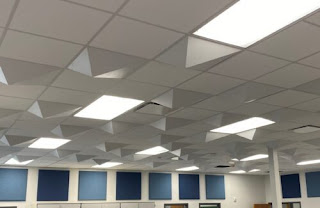Room Acoustics fundamentals
Have you ever been watching TV and regardless how loud you turn on the volume, it was still difficult to hear? Have you ever walk down a long, narrow hall and clap your hands to hear a strange echo? Okay, those are just some of the impacts that rooms have on sounds and yes, they play a role in the recordings. Hence, it is vital to first consider the quality of the acoustic diffuser of a room before you commence recording your awesome songs.
There is ample information written on the subject of acoustics and most of us don’t have the energy or time to absorb it. The emphasis here is to provide you sufficient information to realize what makes a bad room for recording and how to detect issues before the record button get pressed. This is why you should look for sound panels for walls.
Room modes and resonance
Have you ever played a specific note on your instrument and something in the room vibrated as a result. Okay, that note hit the resonance of that object. What does resonance entail? If you take a piece of string and tie one end to something and then shake the string until you get the string vibrate with a single arc, you are at the point where the least amount of energy is necessary to shake the string. This is also a medium of sound measurement.
Good echoes
Allow me to just reiterate that the drier the room, the better for recording and this is mainly due to the developments in digital emulation and computer technology that makes it simpler to create very realistic sounding artificial echo. Remember, you are just trying to get a rough idea about the benefits of installing sound deadening curtains, as there are more precise methods, but we are trying to keep it easy and inexpensive.




Comments
Post a Comment